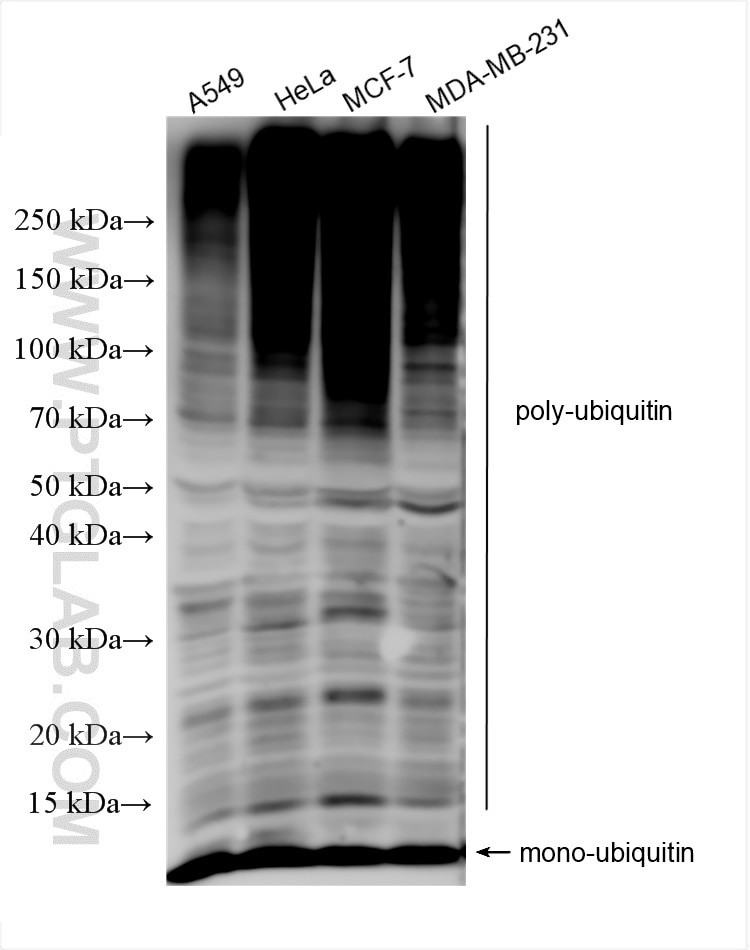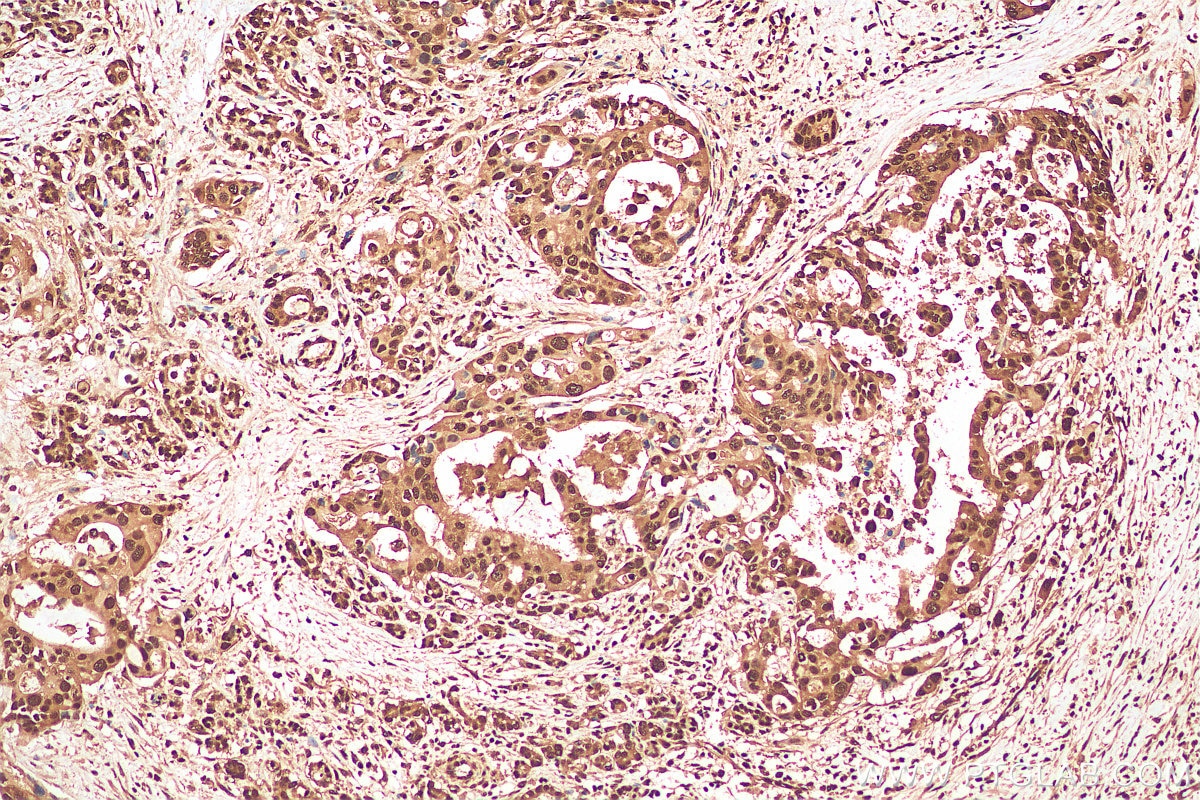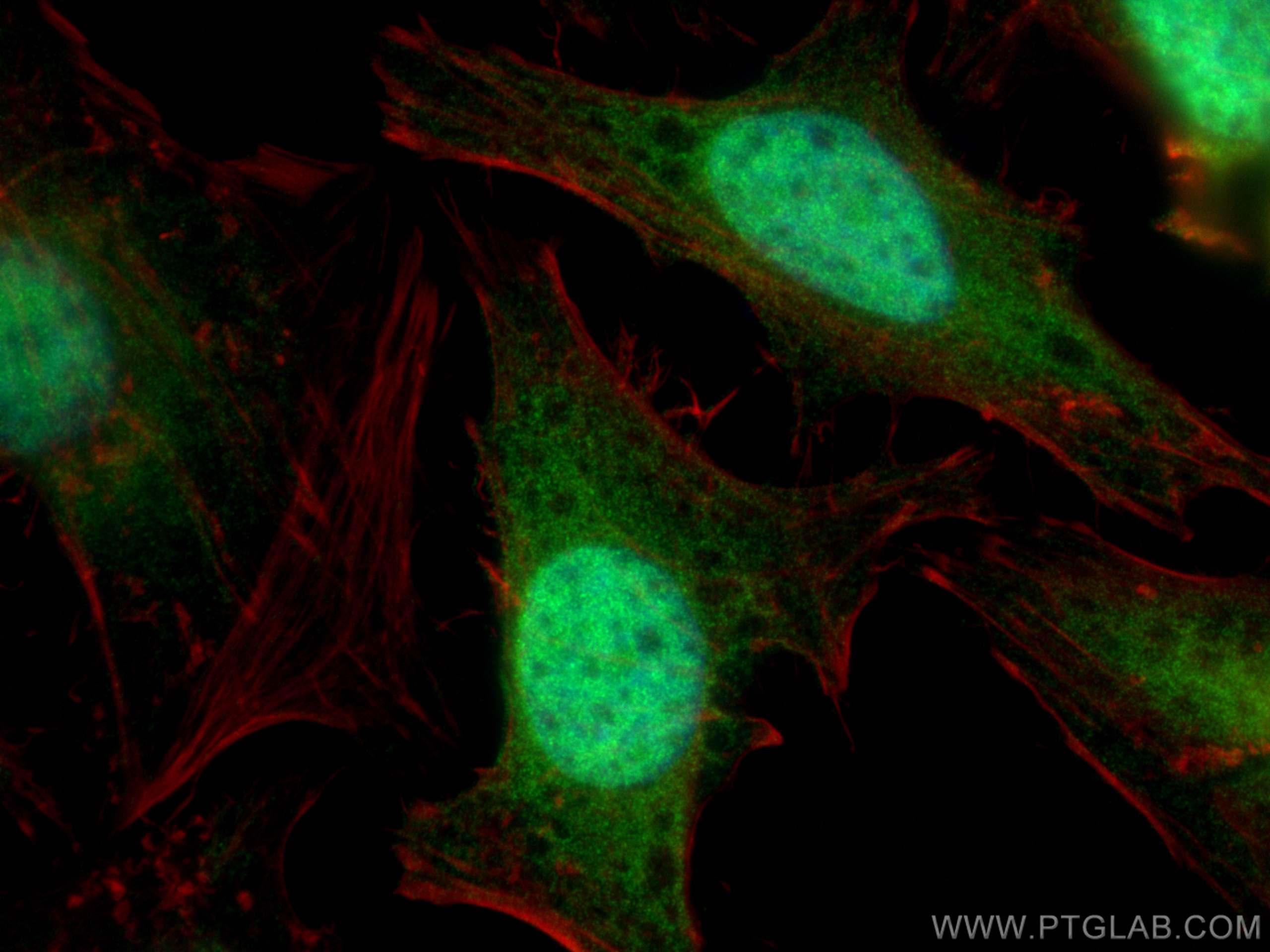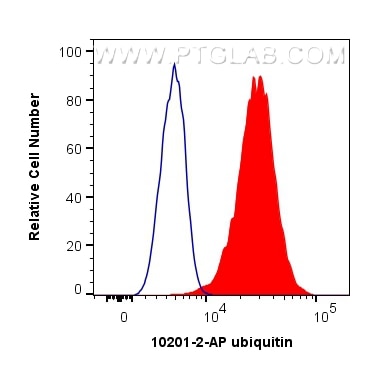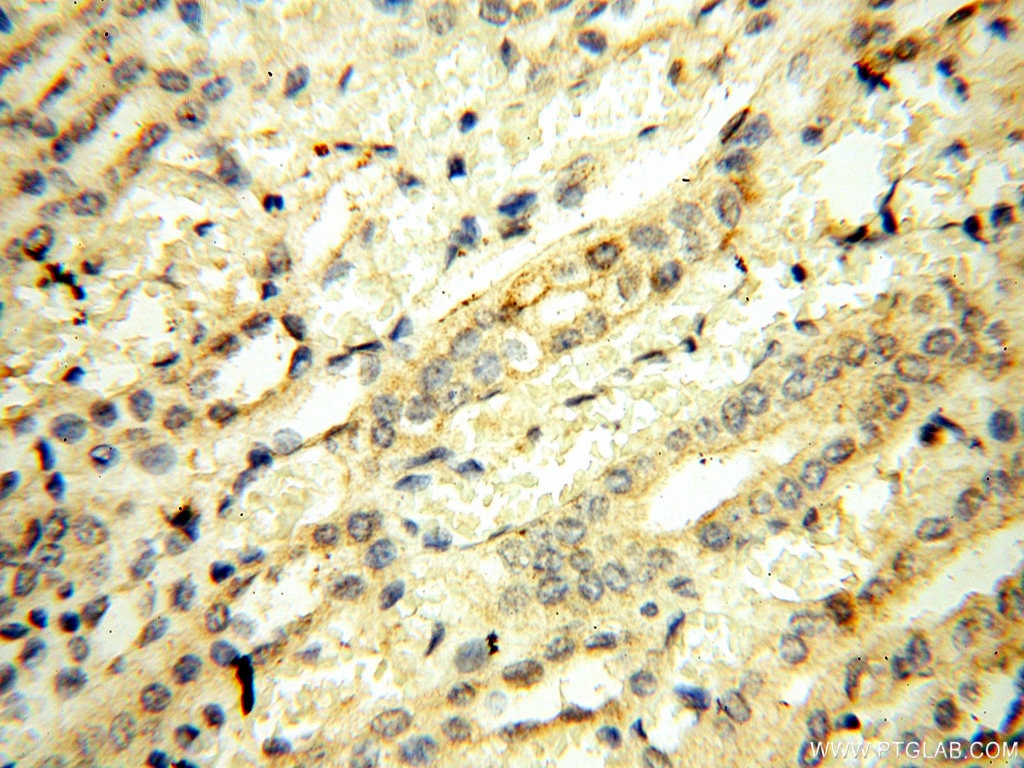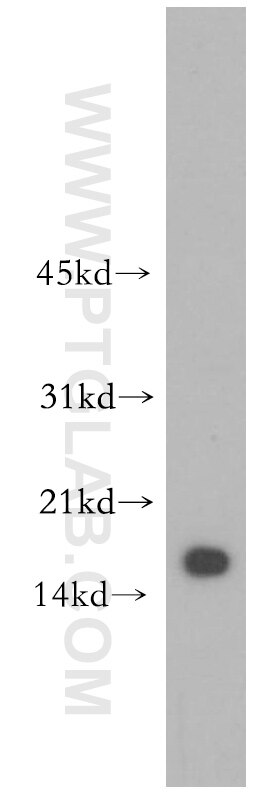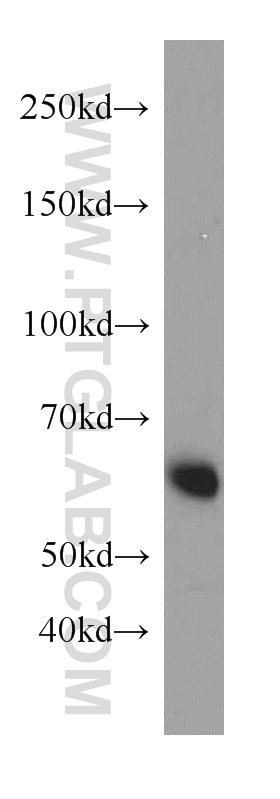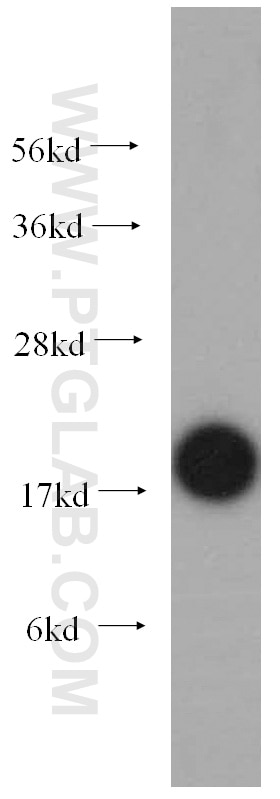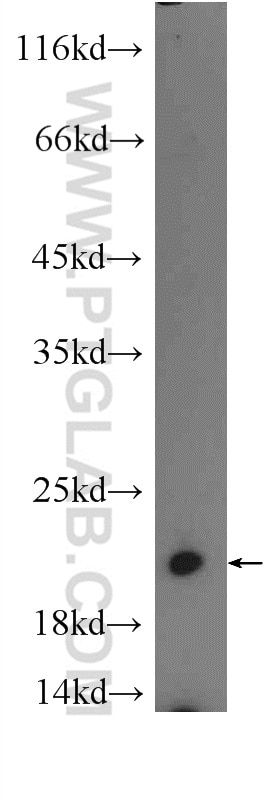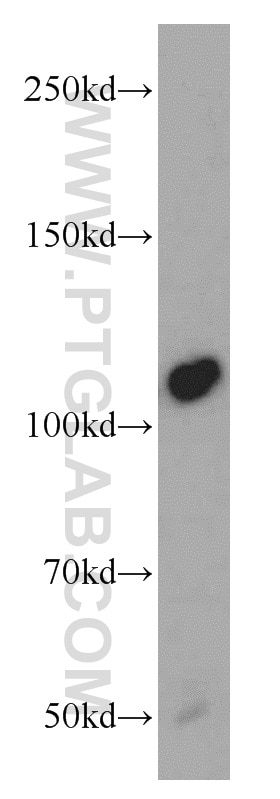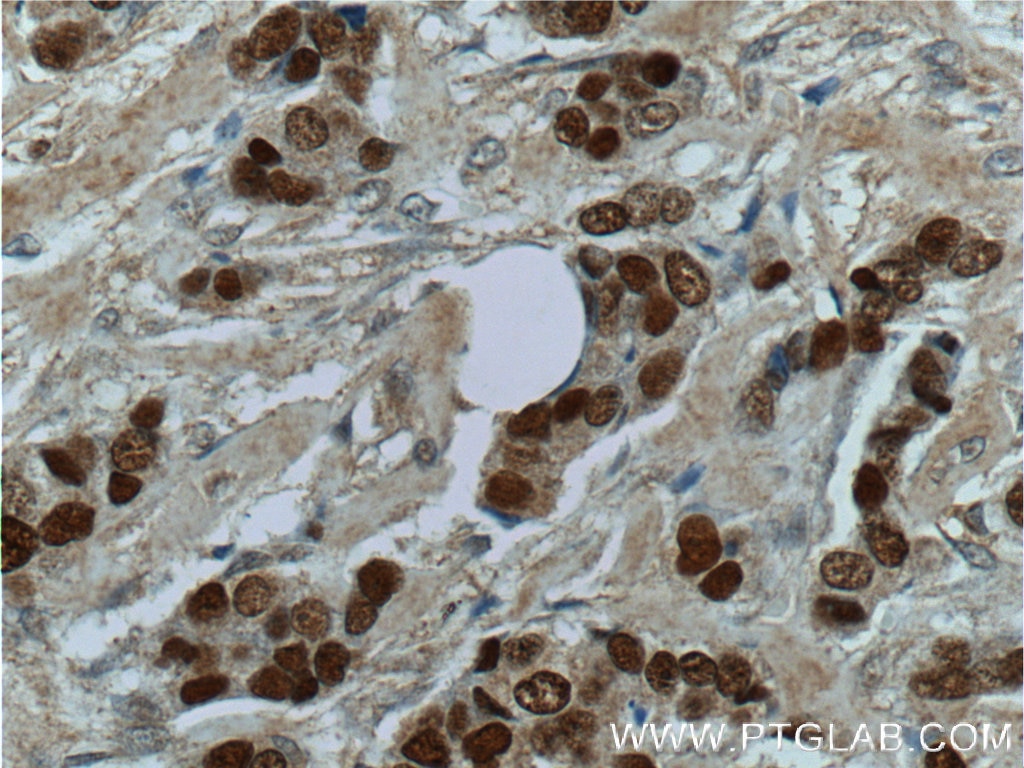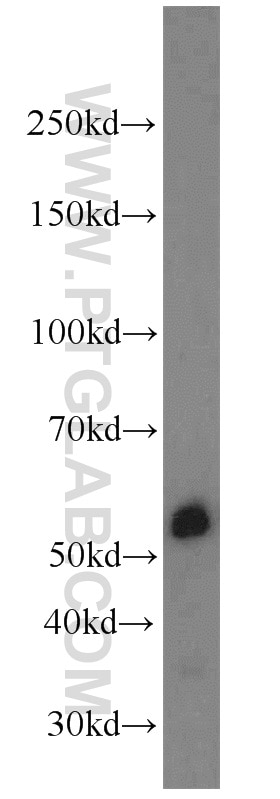ubiquitin Polyklonaler Antikörper
ubiquitin Polyklonal Antikörper für WB, IHC, IF/ICC, FC (Intra), ELISA
Wirt / Isotyp
Kaninchen / IgG
Getestete Reaktivität
human, Maus, Ratte und mehr (4)
Anwendung
WB, IHC, IF/ICC, FC (Intra), CoIP, ChIP, ELISA
Konjugation
Unkonjugiert
Kat-Nr. : 10201-2-AP
Synonyme
Galerie der Validierungsdaten
Geprüfte Anwendungen
| Erfolgreiche Detektion in WB | A549-Zellen, HeLa-Zellen, MCF-7-Zellen, MDA-MB-231-Zellen |
| Erfolgreiche Detektion in IHC | humanes Pankreaskarzinomgewebe Hinweis: Antigendemaskierung mit TE-Puffer pH 9,0 empfohlen. (*) Wahlweise kann die Antigendemaskierung auch mit Citratpuffer pH 6,0 erfolgen. |
| Erfolgreiche Detektion in IF/ICC | HeLa-Zellen |
| Erfolgreiche Detektion in FC (Intra) | HeLa-Zellen |
Empfohlene Verdünnung
| Anwendung | Verdünnung |
|---|---|
| Western Blot (WB) | WB : 1:1000-1:8000 |
| Immunhistochemie (IHC) | IHC : 1:50-1:500 |
| Immunfluoreszenz (IF)/ICC | IF/ICC : 1:200-1:800 |
| Durchflusszytometrie (FC) (INTRA) | FC (INTRA) : 0.40 ug per 10^6 cells in a 100 µl suspension |
| It is recommended that this reagent should be titrated in each testing system to obtain optimal results. | |
| Sample-dependent, check data in validation data gallery | |
Veröffentlichte Anwendungen
| WB | See 351 publications below |
| IHC | See 9 publications below |
| IF | See 18 publications below |
| CoIP | See 27 publications below |
| ChIP | See 1 publications below |
Produktinformation
10201-2-AP bindet in WB, IHC, IF/ICC, FC (Intra), CoIP, ChIP, ELISA ubiquitin und zeigt Reaktivität mit human, Maus, Ratten
| Getestete Reaktivität | human, Maus, Ratte |
| In Publikationen genannte Reaktivität | human, Affe, arabidopsis, Maus, Ratte, Rind, Trypanosoma cruzi |
| Wirt / Isotyp | Kaninchen / IgG |
| Klonalität | Polyklonal |
| Typ | Antikörper |
| Immunogen | ubiquitin fusion protein Ag0260 |
| Vollständiger Name | ubiquitin B |
| GenBank-Zugangsnummer | BC000379 |
| Gene symbol | ubiquitin |
| Gene ID (NCBI) | 7314 |
| Konjugation | Unkonjugiert |
| Form | Liquid |
| Reinigungsmethode | Antigen-Affinitätsreinigung |
| Lagerungspuffer | PBS mit 0.02% Natriumazid und 50% Glycerin pH 7.3. |
| Lagerungsbedingungen | Bei -20°C lagern. Nach dem Versand ein Jahr lang stabil Aliquotieren ist bei -20oC Lagerung nicht notwendig. 20ul Größen enthalten 0,1% BSA. |
Hintergrundinformationen
Ubiquitin B (UBB) is a member of ubiquitin family, one of the most conserved proteins known. Ubiquitin B is required for ATP-dependent, non-lysosomal intracellular protein degradation of abnormal proteins and normal proteins with a rapid turnover. Ubiquitin B is covalently bound to proteins to be degraded, and presumably labels these proteins for degradation. Ubiquitin also binds to histone H2A in actively transcribed regions but does not cause histone H2A degradation, suggesting that ubiquitin is also involved in regulation of gene expression.When polyubiquitin is free (unanchored-polyubiquitin), it also has distinct roles, such as in activation of protein kinases, and in signaling. This gene consists of three direct repeats of the ubiquitin coding sequence with no spacer sequence. Consequently, the protein is expressed as a polyubiquitin precursor with a final amino acid after the last repeat. Aberrant form of this protein has been noticed in patients with Alzheimer's and Down syndrome. Interestingly ubiquitin also becomes covalently bonded to many types of pathological inclusions which appear to be resistant to normal degradation.
Protokolle
| Produktspezifische Protokolle | |
|---|---|
| WB protocol for ubiquitin antibody 10201-2-AP | Protokoll herunterladen |
| IHC protocol for ubiquitin antibody 10201-2-AP | Protokoll herunterladen |
| IF protocol for ubiquitin antibody 10201-2-AP | Protokoll herunterladen |
| Standard-Protokolle | |
|---|---|
| Klicken Sie hier, um unsere Standardprotokolle anzuzeigen |
Publikationen
| Species | Application | Title |
|---|---|---|
Nature Proteasome inhibition for treatment of leishmaniasis, Chagas disease and sleeping sickness. | ||
Cell Res NudCL2 is an autophagy receptor that mediates selective autophagic degradation of CP110 at mother centrioles to promote ciliogenesis. | ||
Nat Commun UV-B irradiation-activated E3 ligase GmILPA1 modulates gibberellin catabolism to increase plant height in soybean | ||
Nat Commun Stabilization of Pin1 by USP34 promotes Ubc9 isomerization and protein sumoylation in glioma stem cells | ||
Acta Neuropathol Upstream open reading frame with NOTCH2NLC GGC expansion generates polyglycine aggregates and disrupts nucleocytoplasmic transport: implications for polyglycine diseases. |
Rezensionen
The reviews below have been submitted by verified Proteintech customers who received an incentive for providing their feedback.
FH David (Verified Customer) (01-02-2024) | Various bands in the soluble fraction, potentially from conjugated proteins, but also clear bands for the ubiquitin monomers.
|
FH Brice-Emmanuel (Verified Customer) (10-12-2023) | Work well
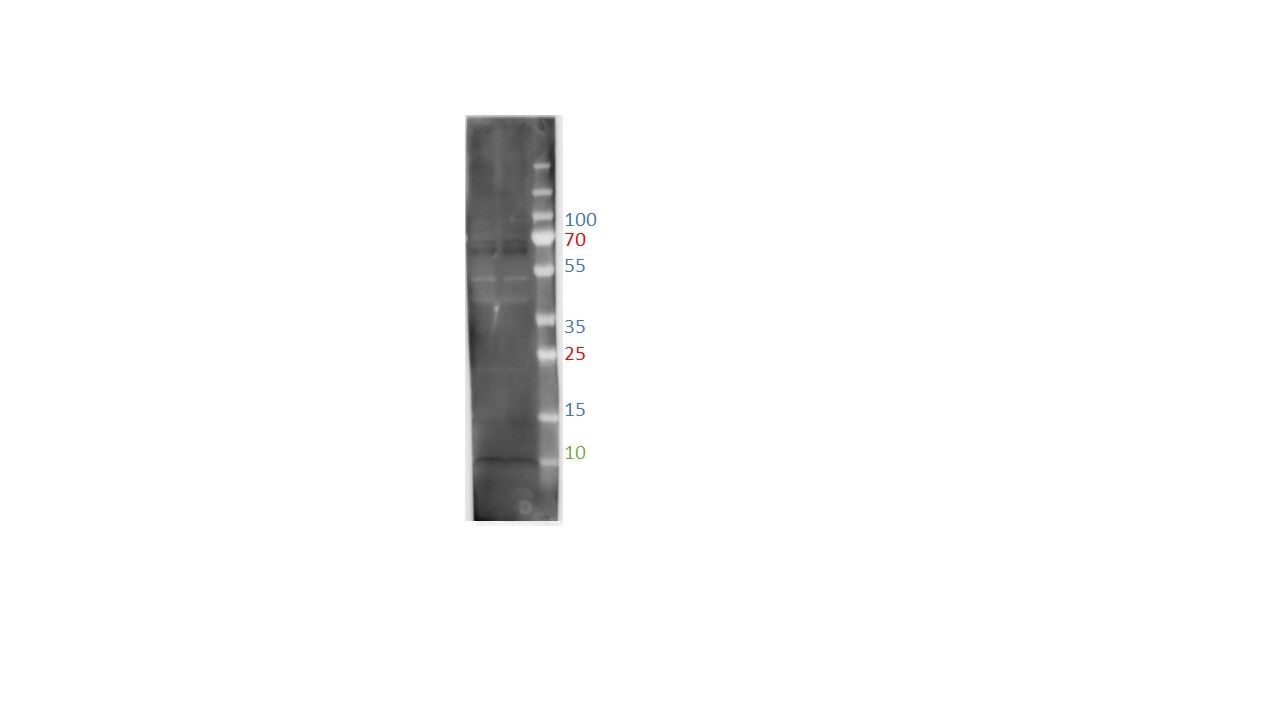 |
FH Brandon (Verified Customer) (03-14-2022) | The antibody works perfectly for ubiquitin located in Human Fibroblast
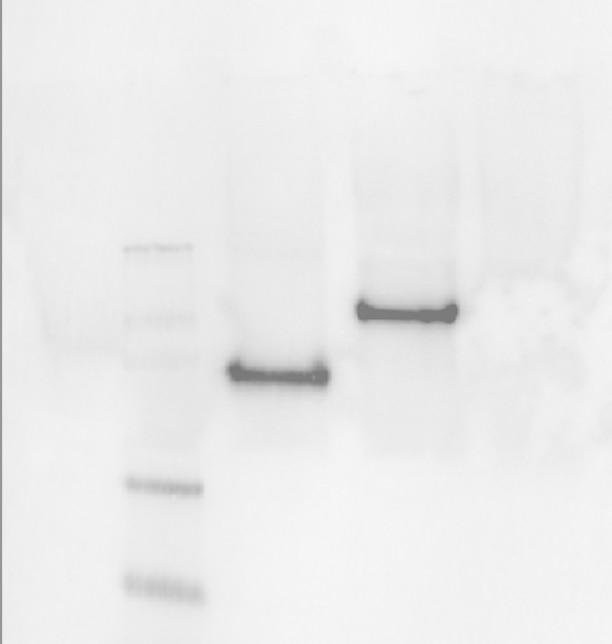 |
FH Anita (Verified Customer) (08-06-2021) | 10ug protein load from C. elegans
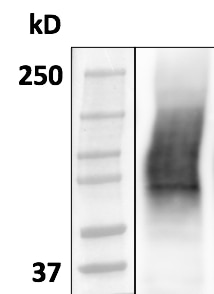 |
FH Azita (Verified Customer) (06-02-2021) | Western blot analysis using ubiquitin polyclonal antibody in NSC34 cell line at dilution of 1:500.
|
FH Robert (Verified Customer) (06-24-2019) | 1. reducing conditions2. non-reducing conditions
 |
